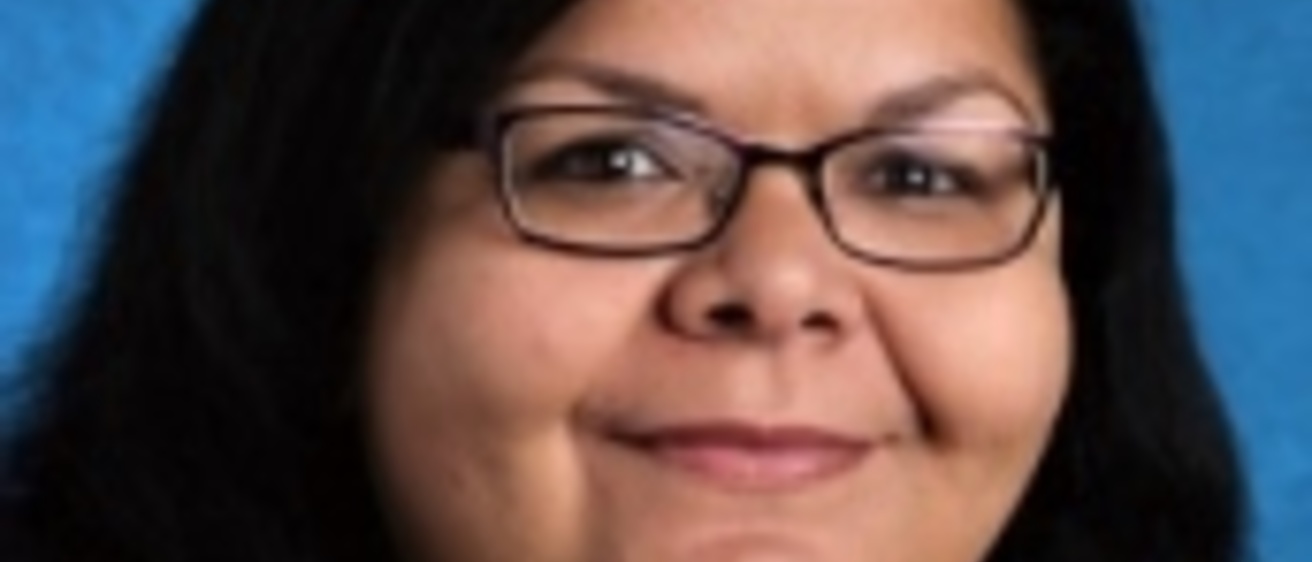By Elianna Novitch
From a young age, Dana Miller knew she wanted to help people.
That passion for helping others led her to get a Masters in Clinical Psychology from the University of Northern Iowa and later a Specialist in Education degree (’07) and a Ph.D. in School Psychology (’10) from the University of Iowa College of Education. Miller decided to pursue a Ph.D. in School Psychology at the College of Education because she believes that early intervention is key in supporting students' mental health.
Since 2006, Miller, of Jesup, Iowa, has been working as a school psychologist at Central Rivers Area Education Agency and now serves as the lead for the agency’s multi-tiered system of support for well-being.
Miller facilitates system-wide change in the 53 school districts and 18 counties her agency serves to develop a multi-tiered system of support so that schools can better meet student’s social, emotional, behavioral and mental health needs.
Some of her job includes developing and leading professional development for school districts and their educators and overseeing the implementation process of support programs. She also helps conduct program evaluations to ensure that schools are meeting the needs of their students.
Outside of her job, Miller is involved with the Iowa School Mental Health Alliance and serves as facilitator of the Evidence-Based Practices group within the organization. She is also on the Iowa AEA Well-Being Team and is a member of the Iowa Children’s System State Board Universal Screening Panel.
Additionally, she has served on many Department of Education teams including State Social Emotional Learning Advisory Team, Early Warning Systems Task Team, and Social, Emotional, Behavior, and Mental Health Universal Tiered Tools Team.
Miller says her time at the College of Education had a large impact on how she views her work. She was especially impacted by the mentorship she received from faculty emerita Kathryn Gerken, a former director of the College of Education’s School Psychology Program.
“I learned to view concerns through various lenses and to think ‘outside the box.’ No two children or systems are the same. We, therefore, need to dig deeper to get a comprehensive understanding of concerns and then support accordingly,” Miller says. “Dr. Gerken stressed the need to support the whole child as well as supporting individuals helping the student, such as schools, parents, and communities.”
While attending the UI, Miller had the opportunity to complete practicums in many different settings including school settings, alternative schools, community mental health, psychiatric facilities, and residential treatment centers. These experiences helped develop her understanding of systems of support for students and about the impact of mental health on academics and school performance – all things she has carried into her position today.
Miller emphasized the importance of addressing students’ mental health needs and helping them develop social emotional learning skills in order for them to be successful.
“The mental health crisis is clear. One in five kids have or will have a mental health disorder within a duration of a year and suicide is currently the second leading cause of death for our youth,” Miller says. “We know that kids have mental health and social emotional learning needs and that those needs don’t go away when they walk into schools. So, we need to make sure that we're meeting those needs and helping kids develop the skills they need to be more successful and function at higher levels.”
Miller says she decided to stay and work in Iowa for several reasons but most importantly because she saw the need to meet the mental health needs of students across Iowa.
"The need for mental health supports for children, especially in rural areas, was and still is overwhelming,” Miller says. “I wanted to do my part in equipping schools, educational staff, and families with the supports and services they need to help our children."
